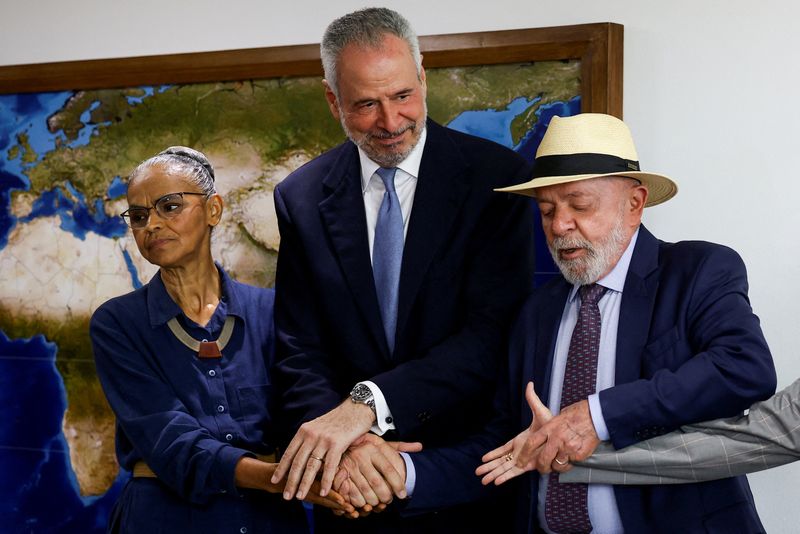By Lisandra Paraguassu
As world leaders grapple with the U.S. withdrawal from the Paris Settlement, Brazil, the host of this 12 months’s COP30 world local weather summit, sees a possibility to amplify the voices of growing nations in what will likely be a fierce dispute over who pays for the worldwide transition to cleaner vitality sources.
Throughout final 12 months’s summit, in Azerbaijan, a bitter combat that pitted rich nations in opposition to lower-income international locations ended with a pledge from rich international locations to offer $300 billion a 12 months to help growing nations by 2035. Whereas the goal is triple what the present goal of $100 billion, it’s only a fraction of the $1.3 trillion per 12 months growing international locations say are wanted. The combat is more likely to proceed this 12 months.
“It was already hard to get to $300 billion with the United States in the negotiation,” stated Andre Correa do Lago, the newly appointed president of COP30, in an interview with worldwide media retailers on Wednesday.
He famous that, below President Joe Biden, the U.S. applied new insurance policies to combat local weather change and labored to strengthen the function of multilateral improvement banks, such because the World Financial institution, to extend financing of tasks to curb world warming. With out all that motion, Correa do Lago added, growing local weather finance “will certainly be harder now.”
Regardless of these challenges, Correa do Lago added, growing international locations are “very united” in blocking calls from rich nations to increase the bottom of nations that financially help efforts to mitigate local weather change and adapt to its impacts world wide.
Lately, European leaders have been calling on rising economies which might be huge polluters and more and more rich, reminiscent of China and Gulf states, to make necessary contributions to assist poorer international locations deal with local weather change. China, the second most populous nation on Earth, is by far the world’s largest emitter of greenhouse gases.
“What developed countries want isn’t to increase the financial resources, they want to lower their contribution in donating financial resources and that is naturally and profoundly wrong,” Correa do Lago stated.
The U.S. withdrawal additionally stirred questions on which international locations will assist steer the end result of the worldwide local weather summit this 12 months. As one among world’s greatest economies and emitters, the U.S. has been central to negotiating the outcomes of COP conferences, together with the European Union and China.
Commenting on the anticipated U.S. exit from the Paris Settlement finally 12 months’s COP29 local weather summit, China’s local weather envoy Liu Zhenmin stated “Everyone expects China and the EU to work together to fill this gap,” in response to state-run newspaper The Beijing Information. “Which is a beautiful wish, but it is actually difficult to do.”
Correa do Lago pointed to the BRICS group – which gathers Brazil, China and different rising economies – as a discussion board that will assist Brazil construct a consensus amongst growing nations to not again down on their requires extra contributions from rich nations, that are traditionally the most important emitters of greenhouse gases. Brazil additionally holds the BRICS presidency this 12 months.
“We are going to seek also in BRICS to obtain some consensus and provoke certain discussions,” Correa do Lago stated.
Through the G20 summit in Brazil final 12 months, Brazil and different growing international locations managed to dam an try by rich nations to incorporate a name for rising economies to assist in local weather finance. Correa do Lago was one of many lead negotiators then.

Correa do Lago made a powerful protection of what rising economies are already doing to fight local weather change with their very own budgets, highlighting Brazil’s efforts to curb deforestation, a serious supply of greenhouse fuel emissions, and the trillions in Chinese language investments in clear vitality expertise.
“China is providing infinitely more resources to the developing world by massively reducing the price of solar panels and the cost of electric vehicles,” he stated, including that these investments are much more significant to poorer international locations than if China “were just contributing symbolic amounts.”




